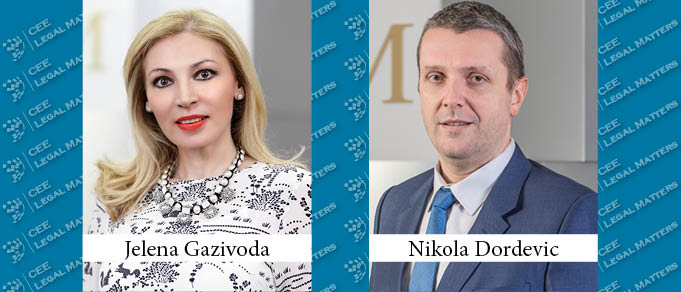The amendments to the Serbian Energy Law, enacted in late April 2021, prescribed the obligation for transmission system operators in the electricity and natural gas sector to implement the EU electricity and natural gas network codes.
The obligation refers to the following acts in the electricity sector: Regulation (EU) 2016/631, establishing a network code on requirements for grid connection of generators, and Regulation (EU) 2016/1447, establishing a network code on requirements for grid connection of high-voltage direct-current systems and direct current-connected power park modules. In the natural gas sector the following acts should be implemented: Annex 1 to the Regulation (EC) 715/2009, on conditions for access to the natural gas transmission networks, repealing Regulation (EC) 1775/2005; Regulation (EU) 312/2014, establishing a network code on gas balancing of transmission networks; Regulation (EU) 703/2015, establishing a network code on interoperability and data exchange rules; Commission Regulation (EU) 2017/459, establishing a network code on capacity allocation mechanisms in gas transmission systems, repealing Regulation (EU) 984/2013; and Commission Regulation (EU) 2017/460, establishing a network code on harmonized transmission tariff structures for gas.
The Procedure and Stakeholders
The procedure of implementation of the EU electricity and natural gas network codes requires close cooperation of transmission system operators, the Energy Agency of the Republic of Serbia (AERS), and the Ministry of Mining and Energy of the Republic of Serbia. The deadline for subject implementation is August 30, 2021, by which date the transmission system operators should provide the Ministry with the harmonized acts implementing the applicable network codes, whereas the harmonized acts should have been previously approved by the AERS. Finally, the harmonized acts transposing the EU electricity and natural gas network codes shall be submitted for adoption by the Government of the Republic of Serbia as a set of decrees.
The implementation of the EU electricity network codes falls to two transmission system operators, Elektromreza Srbije and Elektrodistrubucija Srbije. On the other hand, the implementation of the EU natural gas network codes is the obligation of three natural gas transmission system operators, Transportgas Srbija, Gastrans, and Yugorosgaz-Transport.
Benefits for the Electricity and Natural Gas Market in the Republic of Serbia
The implementation of the EU electricity and natural gas network codes is relevant for several reasons. Firstly, it represents one of the crucial steps in the formal fulfillment of the international obligations of the Republic of Serbia, deriving from the Energy Community Treaty. Secondly, it substantially contributes to the harmonization of procedures of Serbian transmission system operators with the adjoining transmission system operators. Namely, despite the fact that the adjoining transmission system operators are operationally required to act in the agreed manner, such harmonization will be considered as a firm legal ground for the Serbian transmission system operators to act in the same manner as any other EU transmission system operator. Thirdly, the implementation of the EU electricity and natural gas network codes would foster competition on the electricity and natural gas market in Serbia, through free and non-discriminatory access to the transmission systems, and would contribute to further opening the Serbian market. This is especially relevant for the natural gas market, which has been perceived by the Energy Community Secretariat and the EU Commission as closed, restricted, and competition unfriendly. Upon completion of the required harmonization initiative and adoption of the relevant decrees by the Government of the Republic of Serbia, it is further expected that the network codes of each transmission system operator will be harmonized with the adopted decrees, and that the transmission system operators will organize their daily operations in compliance with EU best practices. Finally, the harmonization with the EU electricity and natural gas network codes would ultimately be beneficial to the transmission systems’ users, and those users should become acquainted with the introduced updates to fully utilize the rights, options, and prospects granted by the new legislation.
By Jelena Gazivoda, Senior Partner, and Nikola Djordjevic, Partner, JPM Jankovic Popovic Mitic
This Article was originally published in Issue 8.8 of the CEE Legal Matters Magazine. If you would like to receive a hard copy of the magazine, you can subscribe here.
